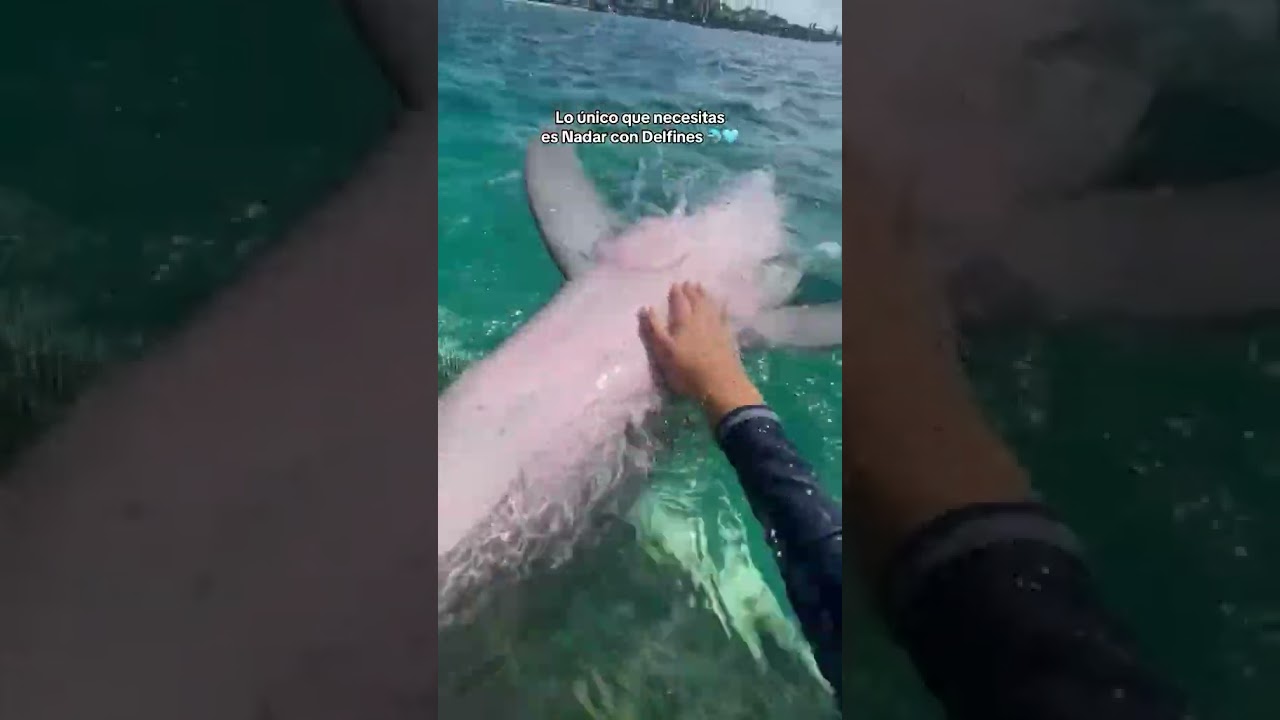- Exploring the scientific behavior and intelligence of dolphins, highlighting why swimming with them can be uniquely enlightening.
- Understanding the ethics, responsibilities, and impacts of dolphin interactions in captivity and the wild.
- Highlighting the conservation efforts required to protect dolphins, focusing on marine ecosystem preservation.
- Analyzing the economic and educational benefits of dolphin-based eco-tourism to enhance public awareness and conservation funding.
- Discussing the implications for marine park management and wildlife conservation policies through regulated dolphin interaction activities.
Dolphins stand out in the marine animal kingdom due to their exceptional intelligence and sociability. These cetaceans have captivated human interest for centuries, primarily because of their complex behaviors and evident cognitive abilities. Swimming with dolphins is believed by many to be profoundly fulfilling because it offers a glimpse into the sophisticated minds of these marine mammals.
Their brains are notably large, particularly the cerebral cortex, which is responsible for processing emotions, complex thought, and problem-solving. This neurological development indicates their capacity for advanced communication and intricate social structures. Observing wild dolphins engaging in cooperative hunting, playful interactions, and even episodes of cultural transmission underscores the potential enrichment one experiences during swim encounters with them. This interaction provides an unparalleled opportunity to gain insight into the marine ecosystem’s dynamic nature.
The interaction between humans and dolphins raises critical ethical concerns, especially within captivity contexts. Interactions should prioritize animal welfare, be it a marine park, aquarium, or a coastal dolphin research center. The need for rigorous regulations is paramount to ensure that these interactions do not jeopardize the animals’ well-being. Welfare-oriented practices demand that dolphins are treated with respect, housed in environments that simulate their natural habitats as closely as possible, and provided with essential social groups.
It is crucial to differentiate between ethical engagements and exploitative displays. While swimming with dolphins can lead to positive human-to-animal connections, such activities must be guided by stringent ethical considerations to prevent stress or harm to the dolphins. Practices should be continuously evaluated by marine biologists and governed by international standards like those from the World Association of Zoos and Aquariums (WAZA) and the Alliance of Marine Mammal Parks and Aquariums (AMMPA).
Conservation efforts play a pivotal role in protecting dolphin populations and ensuring healthy marine ecosystems. As the ocean is a delicate environment where each species contributes to its stability and biodiversity, conserving dolphins is vital. They are often considered indicators of ocean health. Threats from pollution, overfishing, and habitat destruction necessitate comprehensive conservation strategies.
Educational programs aimed at raising awareness about such threats are critical. Programs provide knowledge about dolphins, their habitats, and the general state of marine ecosystems, thus fostering a more conservation-minded human population. Moreover, various conservation organizations focus on sanctuaries for rehabilitating and possibly reintroducing dolphins to the wild, thus addressing long-term sustainability issues.
Dolphin-based eco-tourism offers both educational and economic benefits. By driving tourism that centers on learning and respecting wildlife, economies can benefit while simultaneously promoting dolphin conservation. Eco-tourism initiatives make conservation tangible by allowing people to witness the outcomes of proper conservation efforts firsthand. Such programs also channel funds toward conservation and further educational programs, creating a cyclical benefit system.
By improving public understanding of the importance of conserving our oceans, these tourism activities inspire conservation and encourage donations to wildlife protection organizations. They support a compelling win-win formula for both nature and local economies.
From a management perspective, marine parks balancing tourist satisfaction with conservation need to strategize effectively. The policies surrounding dolphin interactions should be rooted in scientific research and conservation data. Adaptive management practices are crucial, integrating ongoing scientific findings about dolphin behavior, health status, and environmental requirements to enhance and inform park policies and educational outreach.
Moreover, marine park management must collaborate extensively with conservationists, researchers, and policy-makers to ensure sustainable practices. This collaborative effort can help formulate policies that support both animal welfare and the educational goals of public engagement with wildlife.
Swimming with dolphins can indeed be a joyous and enriching experience. However, it is vital to approach such opportunities with an informed mindset dedicated to ethics, conservation, and education. Understanding these magnificent creatures extends beyond mere interaction—it encompasses protecting their habitats, understanding their social dynamics, and ensuring future generations appreciate and contribute to marine conservation efforts. Recognizing dolphins’ role in marine biodiversity and ecosystem health ensures that these interactions are enriching for people and beneficial for dolphins.
*****
Source Description
Swimming with Dolphins is all you need to be happy. 🤩💙🐬
#dolphindiscovery #dolphins #swimwithdolphin #dreamcomestrue #experiencies

